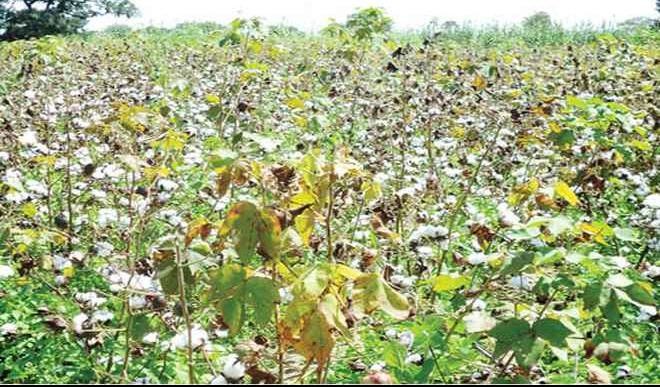Cotton farmers expect good harvest, await textile industries takeoff
Cotton farmers in Nigeria have said access to improved seeds and other inputs led to improved yields on their farms this year. Cotton is grown in the savannah belts of the country, namely, Kano, Kaduna, Oyo, Ondo, Kwara, Katsina, Jigawa, Ogun, Kebbi, Sokoto and Plateau states. Meanwhile, harvest is said to have begun in Katsina, […]

Cotton farmers in Nigeria have said access to improved seeds and other inputs led to improved yields on their farms this year.
Cotton is grown in the savannah belts of the country, namely, Kano, Kaduna, Oyo, Ondo, Kwara, Katsina, Jigawa, Ogun, Kebbi, Sokoto and Plateau states.
Meanwhile, harvest is said to have begun in Katsina, Zamfara and Kano and other places in the North.
The Central Bank of Nigeria had, in May this year, distributed improved cotton seeds to some registered farmers in some of the growing states under its Anchor Borrowers Scheme.
The apex bank had targeted 100,000 farmers in the last planting season, even though not all of them could access the inputs. Each beneficiary was given seeds, fertiliser, insecticide, herbicide, empty sacks and sprayers as part of the loan facility, which is expected to be repaid after harvest.
As harvest begins, farmers who received the improved seeds are smiling. They said the new seeds gave good harvest.
Farmers in Katsina State said that so far, the crop recorded tremendous success. One of the farmers, Abdullahi Mustapha Mahuta, said one could not compare the volume of cotton produced this year with that of last year.
“The commitment of the Federal Government has stimulated the interest of farmers in the state to produce cotton this year. Our major problems years back were lack of improved seeds and price of the produce because of how our local textile industries folded with no hope of rising again. The new seeds and inputs distributed this year by the CBN have yielded results as we can now pick our cotton up to four times in our farms,’’ Mahuta said.
He said what they were now waiting for is the takeoff of the local textile industries so that the demand for the produce would significantly increase and the price improved.
Mahuta further stated that the border closure by the Federal Government would help in arresting the influx of foreign textile materials into the country, which is one of the major challenges affecting local textile and garment industry.
Another farmer, Sa’idu Babangida, however, urged government to improve on its input distribution time so that farmers could fully benefit from the scheme.
“Seeds and other inputs need to be distributed in May or early June when farmers are preparing for the season,’’ he said.
Sa’idu said that considering how rice had become a ‘hot cake’, there is the likelihood that farmers would concentrate on it in the next farming season, especially if the cotton inputs are not distributed on time.
A farmer in Kano State, Mohamed Aliyu, expressed satisfaction with the yield on his farm this year, adding that government should focus on the area of market.
“For many farmers to go into cotton production like before, there must be a guaranteed and attractive price for the produce. And this will be difficult if local textile companies remain the way they are now,’’ he said.
Another farmer in Plateau told Daily Trust on Sunday on phone that even though there’s improvement in the yields this year, the price is not encouraging enough to stimulate more interests in cotton farming.
“There should be deliberate government policies that would not only discourage smuggling of textile materials into the country but revamp moribund textile industries,’’ he said.
However, Alhaji Sagir Malumfashi, a cotton dealer and farmer in Katsina State, observed that in no distant time, if the effort being put by the government is sustained, Nigeria would be self-sufficient in cotton/textile production.
“A metric ton of cotton is now N140,000. And we just started buying it because there’s a lot of cotton in the farms yet to be picked. The price of the produce would certainly go higher, especially when there is local demand for it. If uniforms of our security personnel and hospital wears can be procured locally, then in a very short time our local textile industry will bounce back to life,” Alhaji Sagir said. He also expressed delight at how farmers are responding to the usage of inputs given to them in the last two years.
“This year alone, not less than 6,000 cotton farmers in the state were covered in the CBN’s Anchor-Borrower scheme, and from the output, we can say they have judiciously used what was given to them,’’ he said.
